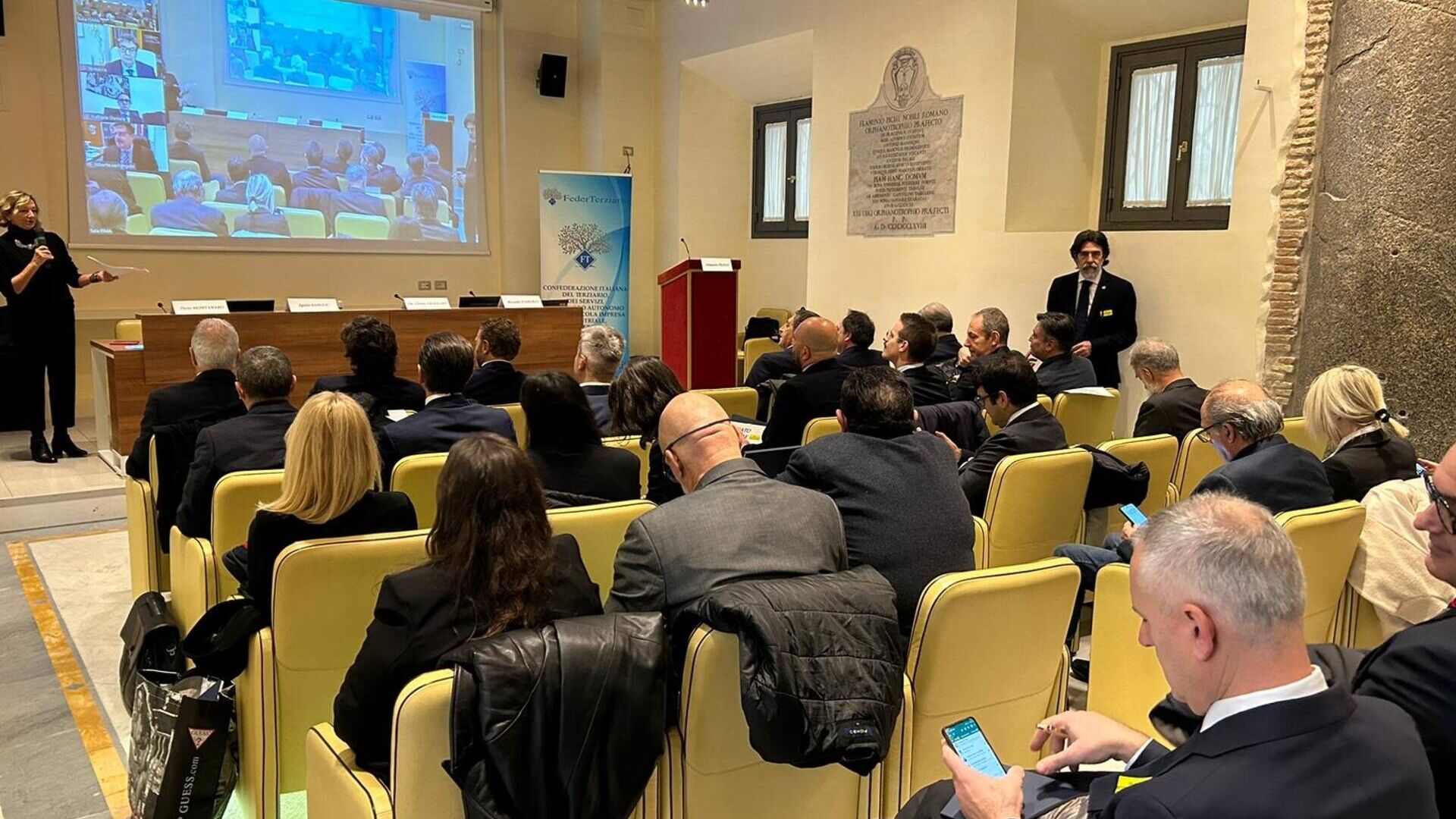How to optimize a website
How to optimize a website
There are around 200 factors that influence the organic positioning of a website.
Only Google is aware of all these factors but according to various studies and various tests that have been done over time we can understand what Google takes into consideration more and what less to determine the position of a website in its results.
Google in its early days gave greater importance to everything that was done internally to its website and much less to everything that happened outside its site. Over time, however, things have changed. If we wanted to give percentage values we could say that:
- at the beginning it gave 80% importance to what was done internally to its website and 20% to what happened externally;
- over time the percentages change and we have a 50% and a 50%;
- today, for about ten years now the percentages have reversed compared to the beginning, so we have 20% for what is done internally to one's website and 80% for what happens externally.
Ok, but what does it mean internally and externally? When we talk about work inside the site (on-site, therefore on the site, inside the site) we are talking about link structure and scheme, meta tags, keywords, images, user-experience, residence time, loading speed, hosting, health , age of domain, authority. When we talk about external work (off-site, off-site, off-site) we look at everything that is done off-site, therefore link building and social signals.
In this article we will address all these aspects, except for the Seo-Onpage part, for the keywords, for the tags, for the links and for the contents that will be produced in the articles separately, since they require different insights.
Let's start…
Web3 to counter the current abandonment of property rights?
Website architecture
The architecture (or structure) of a website is one of the fundamental aspects of a portal. Starting from the mother page, the home page, the whole site is structured in all its parts, thus dividing it according to the importance of each content. This must take place to facilitate both Google's reading software (the spider) in scanning the site and the user, because he must quickly find what he is looking for, making as few steps as possible. In short, neither of them must have any hitches of any kind. A suitable structure will look like this:
What is Remarketing and how to do it effectively
Authority
Each search engine assigns an authority value to each single page of a website. The page with the most authority is almost always the home page, since as mentioned above it is the most important page. Consequently it happens that all the categories, sub-categories and contents connected in a hierarchical manner to the home page, through the links, will receive the due authority. It is precisely for this reason that it is necessary to have an adequate and non-confusing hierarchical structure, in order to distribute this value correctly and smoothly. A diagram can help you think better:
Website hosting: your first protection
How do we increase the authority of a website?
There are two main aspects that Google takes into account when it comes to the authority aspect of a website. The first is the perception that Google has of a portal, i.e. the importance Google gives to that website, an aspect therefore linked to the brand identity of the website, to its context, and therefore to the perception that users also have in the behavior during the visit of the same, therefore the choice of one site rather than another in the search results, the time spent after having clicked, the behavior therefore once one is inside the site.
The second aspect is the value of authority that a site acquires through adequate link building work, where other websites with higher authority than ours will link to our home page and the contents of internal pages. For this topic I talk about it abundantly in the section dedicated to link building and more specifically in the article dedicated to the authority.
Guest posting: what they are, how to find them and how to avoid problems
How do I know the authority of a website?
There are various ways to understand how authoritative a website is. I'll tell you a couple that are in my opinion the most recurring ones: the first with the simple Moz tool that we find at this address ; the second way using a paid software like seozoom o Semrush, just to name a few.
Swiss Internet 8 times faster in the universal service
Hosting
The choice of hosting is FUNDAMENTAL! Before talking about it, I ask you this question: would you let your family live in a house with precarious foundations? That at any moment everything could collapse? I really do not think so. Here, the website is you and your family and the hosting is your home. Hosting must have all the characteristics so that the website being hosted can live peacefully and without problems. It means that the site and its pages must load quickly; means that it must guarantee an uptime as close to 100% uptime (i.e. that it must never experience slumps); it means that he must make backups of the files and the db with a very regular basis (then it depends on the type of site) and must guarantee the recovery of the same in a short time, and so on. In short, all those operations that must not negatively affect your website and your business. We will write a more detailed article on this topic but a very simple indicator to understand the seriousness of a hosting service is certainly the price. If you are dealing with a hosting service for around 30 euros a year, we are certainly not dealing with a professional service and sooner or later you will almost certainly have problems with instability, speed or other. A fair price on the investment of the hosting service is around 200/250 euros upwards (I repeat: it depends on the type of website and the services needed).
TeRABIT, the data highway for Italian scientific research
Speed
Website speed is one of the very important factors. It is usually determined by the use of a good hosting service and the sensible use of images. You have to be careful about the weight of each image, finding a balance between weight and quality. For example, speed purists always use images in .gif format, but the quality of these, honestly, often leaves something to be desired. Then there are the creative graphic designers who instead defend the quality of the images tooth and nail, where, however, the weight begins to be important. That is why it is necessary to have a balance between weight and quality. If you're a plug-in enthusiast, I'll give you some dispassionate advice: first resolve the technical and content problems of your site as much as possible, before resorting to solutions that create more harm than good. Once you have solved all the problems related to hosting, images, htaccess file and cache, then perhaps you can start thinking about installing some plugins that could help you. I'll come back to talk more about images in the article dedicated to seo-onpage.
Design and aerodynamics in Lamborghini DNA: a dynamic relationship
How do I know if my site speed is good or not?
I'll give you two solutions, a tool and Google Analytics. As a tool I recommend you GTmetrix which gives you a general overview of your website and in addition immediately compares PageSpeed and Yslow which are the speedtools par excellence.
Instead, to have a better and more detailed overview and control over the speed of each single page of your website, you can use Analytics by reaching the section BEHAVIOR > Site speed > Page times
Studio Poseidon, the new website for building pathology professionals
The health of your website
To understand the health of your website you need to use the tool Google Search Console.
This Google tool allows you to understand in what condition your website is and consequently intervene to keep it always in perfect shape. Why this job? Because the healthier your website is, the better the results will be in general, i.e. the easier it will be for Google to read the information, the better the page loading speed will be, the 404 status will be monitored (pages not found ), but above all the whole structure will be correctly maintained so as not to disperse the authority. To get better feedback and monitor the health of your site, in addition to Google Search Console, I recommend cross-referencing the data with other crawling software. One of the most popular is definitely Screaming Frog.
Rebranding and restyling, change to grow
The age of the site
The age of the site is another important factor that Google takes seriously into consideration. So as time passes, the website acquires authority, therefore importance. There have been cases where, with the same content, the older domain definitely got the better of the more recent site. I consider this aspect quite normal as spam websites cannot have a long life, as they are identified and banned within a short time and do not live beyond a year.
You may also be interested in:
“The patient at the centre”: a great hope and a meeting in the Senate
The topic of the importance of innovation in medical devices for European healthcare will be explored on 15 May in Rome by experts and politicians
by Alberto NicoliniEditor of districtbiomedicale.it, BioMed News and Radio Pico
Four countries, one gigantic ocean: the CMAR case
It is the marine corridor of the eastern tropical Pacific: Panama, Ecuador, Colombia and Costa Rica allied for the protection of seas and marine species...
Lausanne, on the trail of pollution: the story of an incinerator
A team of scientists has reconstructed the events of the Vallon waste-to-energy plant and the invisible contamination that shocked the Canton of Vaud
How the environment determines the characteristics of the cheese
The tasting highlights how, with unchanged production rules, climate and fodder crops influence different organoleptic notes






